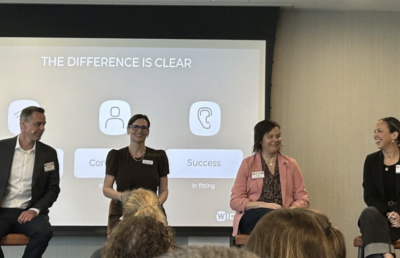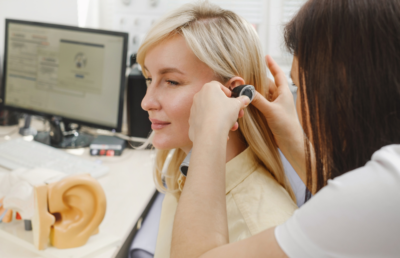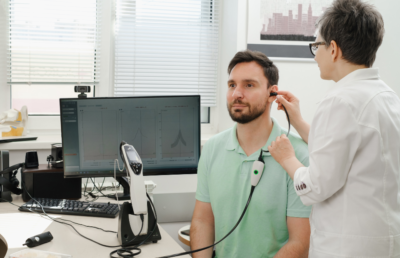One of the main reasons we hear for patients not getting their hearing check-up is the cost associated with treatment. The issue is made worse by the fact that hearing health insurance coverage is so spotty in this country. Many insurance companies classify hearing aids as an elective treatment and use that as an excuse to deny coverage.
But the tides could be changing. Recently, a number of studies, including this one, have discovered that hearing health isn’t just a quality of life issue—it’s embedded into a person’s overall health as much as any other part of our physique. Indeed, the study found that older adults with untreated hearing loss incur substantially higher total health care costs compared to those who don’t have hearing loss—an average of 46 percent, totaling $22,434 per person over a decade.
At the 10-year mark, patients with untreated hearing loss experienced about 50 percent more hospital stays, had about a 44 percent higher risk for hospital readmission within 30 days, were 17 percent more likely to have an emergency department visit and had about 52 more outpatient visits compared to those without hearing loss. Additionally, over 10 years, those with untreated hearing loss had an estimated 50 percent greater risk of dementia, 40 percent greater risk of depression, and almost 30 percent higher risk for falls compared to those without hearing loss.
Insurance companies are likely to perk up their ears when they find out that spending a couple of thousand dollars on a hearing aid for someone can save them ten times that amount in the long run.
But the biggest lesson here is not for the insurers but for individuals, because the importance of hearing health is so frequently underestimated. Hearing loss tends to happen gradually with age, and it’s very easy to ignore it and push off a hearing check-up until a later time. Often, people may feel that by admitting they have a hearing problem they’re giving up their independence. And with older people having less contact with others, sometimes it could be difficult to identify that one is suffering from hearing loss in the first place. For all these reasons, it’s important that friends and relatives watch out for hearing loss in their loved ones and encourage them to go in for a hearing test at the first signs of a potential problem.
Have a friend or loved one who you think may be suffering from hearing loss? We’re here to help! Contact us today to set up an appointment!
One of the main reasons we hear for patients not getting their hearing check-up is the cost associated with treatment. The issue is made worse by the fact that hearing health insurance coverage is so spotty in this country. Many insurance companies classify hearing aids as an elective treatment and use that as an excuse to deny coverage.
But the tides could be changing. Recently, a number of studies, including this one, have discovered that hearing health isn’t just a quality of life issue—it’s embedded into a person’s overall health as much as any other part of our physique. Indeed, the study found that older adults with untreated hearing loss incur substantially higher total health care costs compared to those who don’t have hearing loss—an average of 46 percent, totaling $22,434 per person over a decade.
At the 10-year mark, patients with untreated hearing loss experienced about 50 percent more hospital stays, had about a 44 percent higher risk for hospital readmission within 30 days, were 17 percent more likely to have an emergency department visit and had about 52 more outpatient visits compared to those without hearing loss. Additionally, over 10 years, those with untreated hearing loss had an estimated 50 percent greater risk of dementia, 40 percent greater risk of depression, and almost 30 percent higher risk for falls compared to those without hearing loss.
Insurance companies are likely to perk up their ears when they find out that spending a couple of thousand dollars on a hearing aid for someone can save them ten times that amount in the long run.
But the biggest lesson here is not for the insurers but for individuals, because the importance of hearing health is so frequently underestimated. Hearing loss tends to happen gradually with age, and it’s very easy to ignore it and push off a hearing check-up until a later time. Often, people may feel that by admitting they have a hearing problem they’re giving up their independence. And with older people having less contact with others, sometimes it could be difficult to identify that one is suffering from hearing loss in the first place. For all these reasons, it’s important that friends and relatives watch out for hearing loss in their loved ones and encourage them to go in for a hearing test at the first signs of a potential problem.
Have a friend or loved one who you think may be suffering from hearing loss? We’re here to help! Contact us today to set up an appointment!





